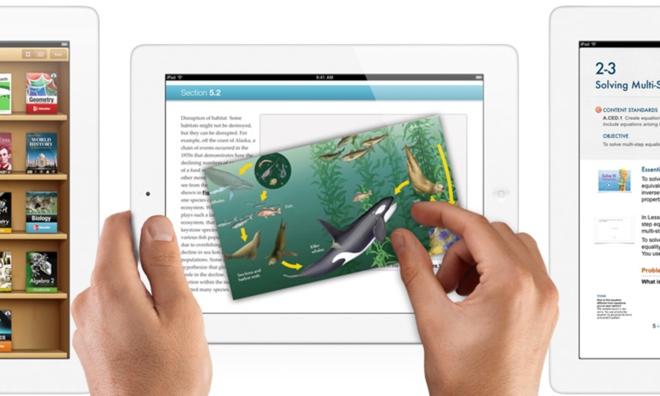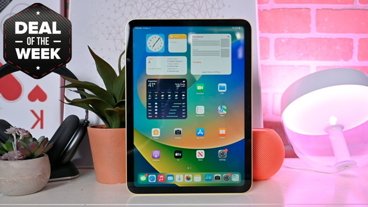Though it was much-touted when Apple signed the contract last year, the company's massive deal to sell iPads to the Los Angeles Unified School District has now officially been suspended, amid accusations that top employees at the district had improperly close ties with the Cupertino, Calif., company.
With a report accusing the bidding process for the project of being tailor made to benefit the eventual winners, Apple and Pearson, the district has chosen to halt its deal with Apple, the Los Angeles Times reported this week. Superintendent John Deasy and Deputy Superintendent Jaime Aquino were found to have had regular contact with executives at both Apple and Pearson, giving the appearance of a potential conflict of interest.
Deasy issued a memo to the L.A. Board of Education on Monday stating that the district will "no longer utilize" its contract with Apple moving forward. The superintendent said the move will allow the district to "take advantage of an ever-changing marketplace and technology advances," but also give it "time to take into account concerns raised" about the project.
It was just over a year ago that the Los Angeles public schools revealed they planned to exclusively use Apple's iPad for a new digital textbook program. Apple touted the $30 million deal, saying it was "thrilled" to have been selected and to work with L.A. Unified.
At the time, Aquino said Apple was selected because the iPad "rated the best in quality, was the least expensive option and received the highest scoring by the review panel that included students and teachers."
And earlier this year, the board earmarked another $115 million for additional iPads, but that move followed accusations that the project was running grossly over budget. After that, the project began to fall apart, and by June the district revealed it would instead allow certain high schools to choose from six different Windows and Chromebook laptops instead of Apple's iPad.
In addition to diversifying the platform base, some teachers said the iPad does not fit the needs of students taking standardized tests, citing insufficient screen size and the lack of a built-in keyboard as major deficiencies.
The board failed to address the additional costs likely associated with making a major platform switch halfway through the tech rollout, nor did it offer details on how schools plan to merge three distinct operating systems into a cohesive learning experience. Curriculum from Pearson, McGraw-Hill/StudySync and Houghton Mifflin Harcourt are currently under review for deployment on the Windows and Chromebook machines.
 Neil Hughes
Neil Hughes







-m.jpg)






 Charles Martin
Charles Martin
 Malcolm Owen
Malcolm Owen
 William Gallagher
William Gallagher

 Christine McKee
Christine McKee
 Wesley Hilliard
Wesley Hilliard

 Andrew Orr
Andrew Orr








86 Comments
OMG, how many officials were close to Microsoft when they were forcing Windows in schools.
Poor students
Of course if it's true it's to be condemned.
There's nothing inherently wrong with keeping the technology base diversified, except that it greatly increases maintenance and training costs, especially if a single teacher has to deal with multiple platforms. It always costs more to support multiple platforms.
The way that Apple (or any manufacturer) could have kept themselves locked in was by also providing high-value applications software that could not easily be replicated by another supplier, such as a computer managed instruction module to track all students' learning.
But there's also nothing inherently wrong with being "close" to the company that you're going to do the deal with. Shouldn't one be close, in order to evaluate and monitor whether you're making the correct purchasing decision?
Why wouldn't they have had close contact with Apple and Pearson. You don't investigate, design, and contract a complex and large contract in a vacuum. I would have been really upset if they hadn't contacted Apple. This whole mess stinks of a gross lack of understanding and back-room fighting over what technology to deploy. I can't wait until the Windows and Chromebook junk gets deployed and nothing works. Who's going to be responsible for this catastrophe? Of course, the same people who wanted to save face on the Apple deal will blame someone else for their inability to properly understand what's needed and how to deploy it.
Just read the LA Times story, http://www.latimes.com/local/lanow/la-me-ln-utla-lausd-deasy-20140825-story.html, and they have more specific information than listed by AI:
"The Times reported Monday that Deasy and his chief deputy at the time, Jaime Aquino, appear to have been discussing the school system’s effort to supply students computers equipped with online curriculum with executives from tech giant Apple Inc. and education publisher Pearson at least two years before a bidding process was concluded and the contracts were approved, records show.
The collaboration between the officials and the executives support findings from an internal school district report, which found that officials' actions could have created an impression of unfairness in the bidding process.
Educators -- including United Teachers Los Angeles -- are troubled that Deasy is putting more power into the hands of private entities and less into the hands of parents and the public."
After reading this I challenge the teacher's union response to this. It shows they don't know how to procure a large system. I'm happy the superintendent and deputy spent two years researching this project with Apple and Pearson. This is good not bad as the union portrays. The union should be slapped silly for complaining about the historical investigation. As for putting more power into the hands of the parents and public, I'm sorry but how much do they know and anyone who's tried putting together a massive system understands what happens when you involve way too many people--nothing ever gets completed.